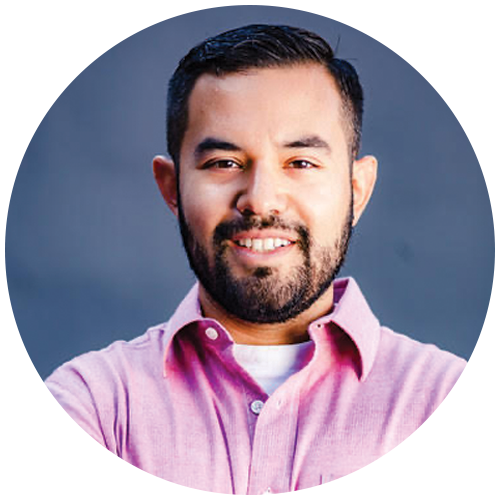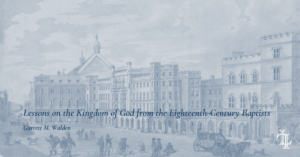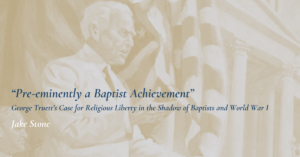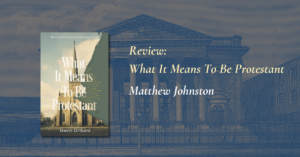When I first set foot onto UCLA’s campus, with its Romanesque Revival style architecture and green rolling hills, I was in awe. Even as an undergrad I knew that at the end of my four years studying physiological science I would be going to medical school (hopefully at UCLA) so that one day I could be a medical missionary. From a young age, God had impressed upon my heart a desire to serve and reach those who had yet to hear the message of the gospel. I remember having dreams about being a missionary in places that had not yet heard the good news. The missio Dei—God’s mission to reconcile humanity to himself—was on my heart, so becoming a medical missionary seemed like a really good way to take part in God’s mission. My plan was set, I was going to be a medical doctor. I thought it was a great plan, but I forgot one thing: “A person’s heart plans his way, but the Lord determines his steps” (Prov. 16:9, CSB).
I planned on going to medical school, but I quickly found that a weakness that was easy for me to cover up in High School would derail my plans: I was terrible at math. It may have been that the way my brain is wired just isn’t conducive for doing math—at least that’s what I tell myself. Calculus and organic chemistry wrecked me, I got grades in those classes that I had never seen in my entire life! At that point, my academic advisor counseled me to try some other classes out. So, I looked through which general education courses I could take to fulfill my graduation requirements and stumbled into a Philosophy of Mind class. I was hooked! It was such a change of pace from my math and chemistry courses. The next quarter I decided to take a Medieval Philosophy class, my 19-year-old mind was blown. There I was at UCLA, studying Augustine, Aquinas, Anselm, and Abelard. I was doing philosophical theology at UCLA—a secular state university! At that point I decided: “I want to be a philosopher.”
With the encouragement of some of my pastors (even though some Christians I knew kept throwing Colossians 2:8 in my face), I changed majors. I spent the rest of my time at UCLA focused on philosophy. In my courses we were assigned Geach and van Inwagen on the Trinity, Craig on Universals, and Plantinga on necessity. In other courses we discussed the ontological argument, the implications of the beatific vision for epistemology, how Berkeley’s idealism affected Christology, and how Anselm’s “On the Fall of Satan” sheds light on free will and moral responsibility. At the time I had no idea that what I was doing was actually Analytic Theology (AT), but that is certainly what I was doing.
Before I graduated from UCLA in 2010 I had to make some decisions as to what I would do next with my life. I really enjoyed doing philosophy, but still had the burden of the missio Dei on my heart. So, I figured I should do philosophy of religion, that way I could be on mission at a secular university. But I knew that in order to do that well I would have to know theology well which took me to Fuller Seminary. I applied to their School of Theology, but just a few months before classes began, I once again felt the burden of my missionary call, so I switched over to the Intercultural Studies program. Eventually, I switched back to theology, and took my first systematic theology class with Oliver Crisp. What I remember most about that class was how much my philosophical training at UCLA fed into our theological discussions. It was almost as though all that I learned—from concepts like identity to mereology to necessity to speech act theory—while doing analytic philosophy served as a resource to draw from when doing theology. Ideas about identity and mereology immediately made their way into Trinitarian discussions. Necessity informed my understanding of perfect being theology. Speech act theory spoke into debates about the nature of Scripture. Analytic theology was being used as a tool for doing theology. This was radically different from my previous encounters with systematic theology, which seemed to have a concordance or proof-text like nature to its approach.
Despite stumbling onto a way of doing theology that aligned itself with my love of philosophy, I still had the burden of the missio Dei in the back of my mind. Thankfully, during my years of doing college ministry while in seminary my calling got sharpened. I discovered what my role is in the mission of God. My calling is to equip the church for the sake of mission.
Towards the end of my MA at Fuller I was finally able to put all the pieces of my journey together: I had a burden for mission, I loved analytic philosophy, and I felt a call to equip the church. All these pieces fit so well into Fuller’s Analytic Theology for Theological Formation Project—my first foray into doing analytic theology as a young academic
The project hypothesized that “Analytic Theology provides a rigorous intellectual framework for the training and formation of church leaders…. It brings together theologians and scholars with pastors and church leaders to explore the ways in which theology, and Analytic Theology specifically, may be of service to the life of the church.”[1]
Through the AT project, and wrapping up my PhD under Oliver Crisp, I learned how to best put my training in analytic philosophy to use for the sake of doing theology that will help to equip the church for its God given mission. The project’s goal of making analytic theology “theological theology” that takes place in the midst of the church, and for the church, has stuck with me and informs the way I do analytic theology today.
That’s how I got I got into Analytic Theology – it all started with a desire to serve God’s mission, winded its way through a bunch of classes in analytic philosophy, and culminated in me completing a PhD as part of Fuller’s Analytic Theology Project. So that’s my answer to the question, “How did You get into Analytic Theology?”
But in my opinion, there is a more important question: “Why did you get into Analytic Theology?” My answer to that question is related to my passion for the mission Dei. It is because Analytic Theology is the best way for me, Chris Woznicki, to do my part to contribute to God’s plan of making himself and the gospel known throughout the world. If you were to ask a bunch of analytic theologians how they got into AT or why they got into AT, I’m sure you would get a bunch of different answers. It’s important to remember that because when critics of AT say “Analytic Theology is this” or “Analytic Theology is that” we can say, “Yes, you are right” Analytic Theology is “this” or “that” for “this” or “that” analytic theologian. But not all analytic theologians are the same, just like not all theologians are the same. As an analytic theologian I have my own conception of what theology is, and thus, what Analytic Theology is. My other analytic theologian friends might have very different ideas. Analytic Theology is not a monolith. Some analytic theologians see analytic theology as a mere intellectual exercise and others see it a “theological theology.” How God has shaped a theologian’s life will shape how they understand the nature and task of theology. That’s true for any theologian, not just analytic theologians.
Author
-

Christopher Woznicki (PhD, Fuller Theological Seminary) teaches systematic theology at Fuller Seminary and Ridely College. He is a Research Fellow at the Jonathan Edwards Center at Gateway Seminary. He is the founding contributor of Theology News, serves with YoungLife, and serves as a Senior Editor for Hanover Press. He is married to Amelia, who is on staff with Young Life. They have two children.
View all posts



